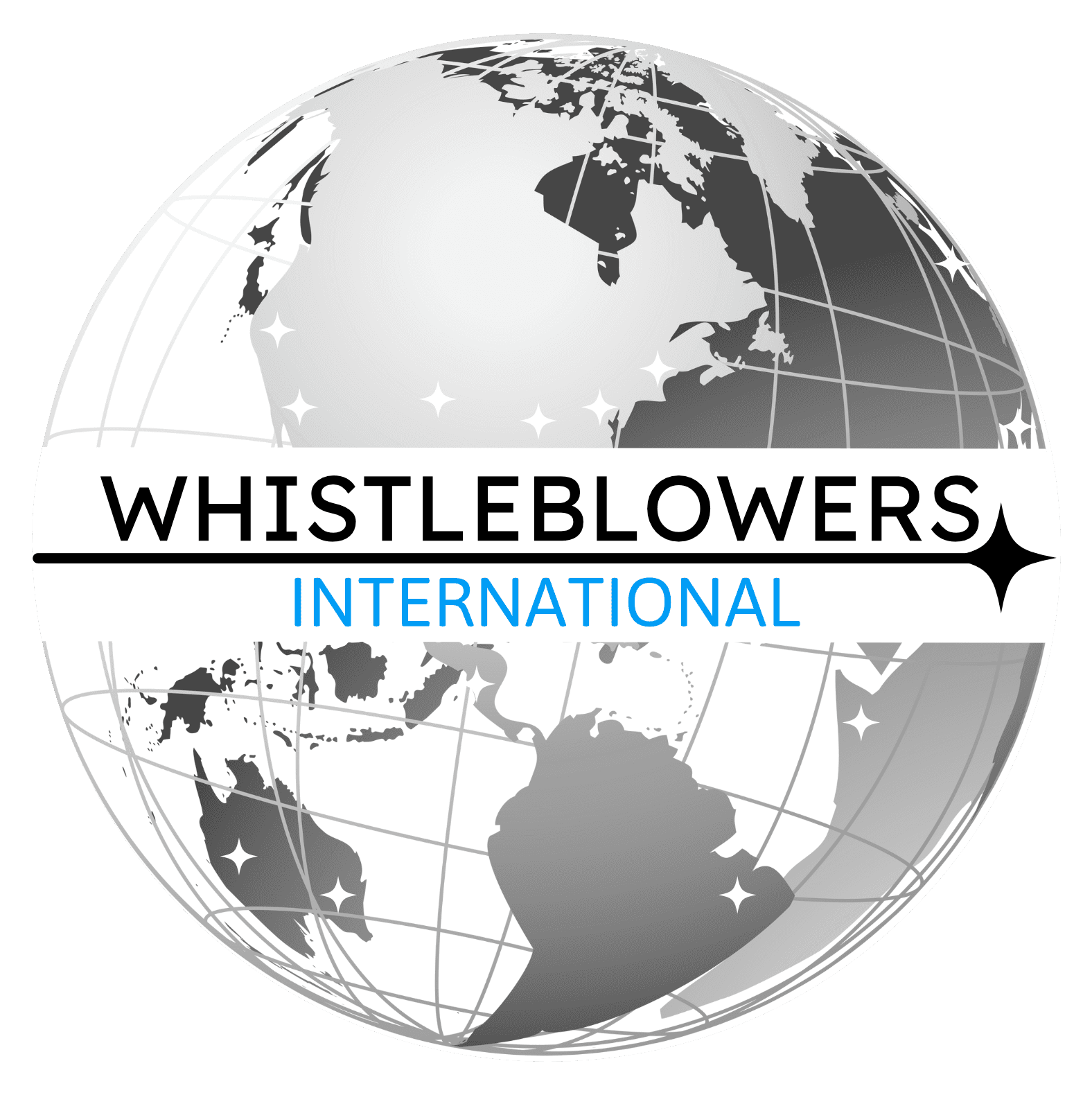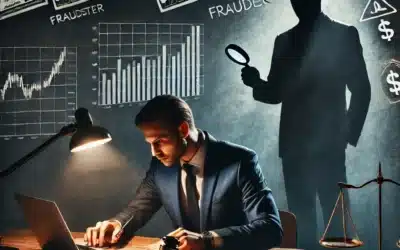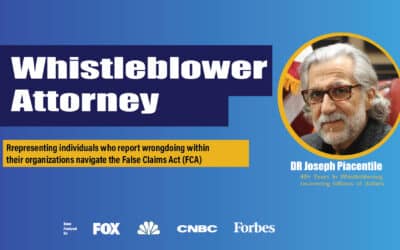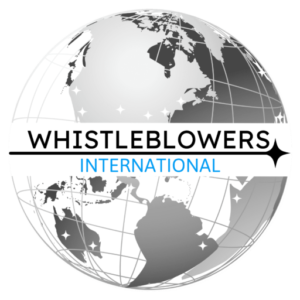CFTC WHISTLEBLOWER PROGRAM
CFTC WHISTLEBLOWER PROGRAM
WHAT ARE DERIVATIVES AND COMMODITY FUTURES?
Derivatives are financial tools that derive their value from an underlying asset. These underlying assets can include stocks, bonds, commodity futures, and currencies. The derivatives market is highly sensitive and extremely volatile. Some people even compare it to legalized gambling. It is a high-risk, high reward market. Because the market is complex and ever-changing, there are many ways financial advisors take advantage of others. The Commodity Futures Trading Commission (“CFTC” or “the Commission”) is an independent agency of the federal government. The CFTC is responsible for regulating the U.S. derivatives market. Formed by the Commodities Exchange Act, the CFTC is there to protect the public from fraudulent and abusive practices. The Division of Enforcement of the CFTC oversees actions related to futures, options, swaps, and the contract of sale of any commodity. They preserve market integrity by detecting, investigating, and prosecuting violations.
IDENTIFYING AND REPORTING DERIVATIVES FRAUD
The most common violations include:
- Fraud: making false or misleading statements of material facts to the Commission. These could include false statements made in registration applications or reports.
- Market manipulation: communicating false or misleading market information that affects the price of a commodity in interstate commerce. This includes antitrust practices, where an authorized person colludes with another market participant to affect the price of a commodity or unlawfully restrain competition.
- Trade practices violations: intentional or reckless disregard of orderly execution of transactions during closing periods. This includes a practice known as “spoofing” which happens when someone produces an offer or a bid with the intent to cancel it before execution.
- Wash sales: buying or selling a product with the sole purpose of avoiding a bona fide market risk. A common example would be to sell a product in a way that qualifies as a tax-deductible loss, only to buy an equal product shortly thereafter, usually within 30 days.
Other violations of the Commodity Exchange Act include offering bribes to Commission officials, obtaining unauthorized access to the Commission, interfering with a Commission proceeding, and failing to establish supervisory procedures that ensure compliance with CFTC rules.
ENFORCEMENT ACTIONS BY THE CFTC
The CFTC can investigate and bring forth a civil lawsuit against people and companies that break these rules. However, as a government agency, it is limited in the amount of information they get. That’s why whistleblowers are important. Through the CFTC’s whistleblower program, individuals can report violations. They can even earn a potential reward for helping the Commission. Although individuals who become whistleblowers are usually insiders, this is not necessary. Market participants who witness misconduct can become whistleblowers under the program. Victims of fraud can become whistleblowers. Even those who come up with an independent analysis that reveals violations of laws enforced by the CFTC can become eligible for a potential reward.
STEP-BY-STEP GUIDE TO BECOMING A CFTC WHISTLEBLOWER
To become a whistleblower, you must have original, non-public information, or derive the information from an independent analysis. Also, the information must be about a Commodity Exchange Act violation or a violation of CFTC rules. The individual must report it to the CFTC through what is called a Form TCR, which stands for Tips, Complaints, and Referrals. Information about the misconduct must be credible and specific. In other words, it cannot be based on assumptions. It also cannot be information protected by the attorney-client privilege. Lastly, the whistleblower must be as detailed as possible when it comes to misconduct. The details must connect the allegations to the rules being broken and any possible effect that they might have on the market. When a TCR is submitted, the CFTC will start an investigation on the alleged wrongdoing. This investigation can become a civil lawsuit. If successful, this will result in monetary sanctions to the defendants. These sanctions are usually based on various factors. This includes the number of violations committed, the violation(s’) duration(s), market impact, and the amount of money the defendant illegally gained. The CFTC has the discretion to double or even triple this amount, depending on how egregious the violations were. If the whistleblower’s information leads to a successful lawsuit that results in $1 million or more in sanctions, they will be entitled to a reward that can range from 10% to 30% of those sanctions recovered by the Commission. This percentage is determined by how vital the information provided by the whistleblower was in the success of the lawsuit.
LEGAL PROTECTIONS FOR WHISTLEBLOWERS: KNOW YOUR RIGHTS
The idea of becoming a whistleblower can be scary, especially if you are an insider who works for the company you want to report. Fear of retaliation is very common in potential whistleblowers. Luckily, the CFTC has ways of protecting these good Samaritans that just want to do the right thing. The first line of protection is anonymity. If a whistleblower is represented by an attorney when submitting a TCR, their identity remains a secret. This is regardless of whether the information leads to a successful enforcement action or not. If the whistleblower becomes eligible for an award, they must then reveal their identity to the Commission. Even then, the CFTC does not reveal the identity of the whistleblower. However, this protection is not absolute. There are a few circumstances under which the CFTC might release the identity of the whistleblower to the defendant or third parties. It might happen if the whistleblower consents to have their identity revealed. It is also possible that disclosure might be required in connection to a public proceeding with a different government entity. The Commission only discloses this information necessary to enforce the Commodity Exchange Act.
Even if the whistleblower’s identity is revealed, there is still a second line of protection: the anti-retaliation clause. Employers are prohibited from firing, demoting, harassing, suspending, or discriminating against a whistleblower who has reported a violation. Employers are not even allowed to restrict the communication a potential whistleblower can have with the CFTC, including the enforcement of a confidentiality agreement or an arbitration clause in the employment contract. Whistleblowers who have been victims of retaliation have up to two years to bring a private action against their employers. They may be entitled to reinstatement, back pay, and litigation costs. This can be done in federal court or through the CFTC itself.
Contact Us Today
The information submitted will be submitted to the law firm of Piacentile & Associates LLP d/b/a Whistleblowers International. This communication does not create an attorney-client relationship and is submitted only for the purpose of evaluating your claim to see if this is something we are able to help you with. By contacting us, you certify that you are a potential client making a bona fide inquiry about obtaining legal services to address a potential whistleblowing legal claim. Past results do not guarantee future outcomes. While this submission does not create an attorney-client relationship, all information submitted will be kept strictly confidential per legal ethics rules since this information is submitted in contemplation of a potential attorney-client relationship. No attorney-client relationship is formed until it is determined after evaluation with you that this is something we can take on and a retainer agreement is signed by you and the law firm of Piacentile & Associates LLP d/b/a Whistleblowers International. Please also understand that by submitting your information, there is no guarantee that we will contact you in response, as at any given time, there are only a limited number of claims we are able to take on and pursue. If we do not contact you within 3-business days of your submission, please reach out to another whistleblower law firm if you are interested in pursuing your matter.
Our Areas of Practice
HEALTHCARE FRAUD
Securities / Derivatives Fraud
Fraud Against the Government
Tax Fraud
Cryptocurrencies Fraud
Defense Contractor Fraud
Money Laundering
Foreign Corrupt Practices Act
DR. JOE’S CASES HAVE BEEN FEATURED IN:





COMMITTED TO GLOBAL TRANSPARENCY
Unmasking Investment Fraud: A Private Investigator’s Guide to Navigating Financial Scams
As a private investigator specializing in investment fraud cases, I've seen countless victims fall prey to sophisticated schemes that exploit their trust and hard-earned money. Over the years, I’ve gathered insights on how to spot fraud, protect investments, and take...
Whistleblower Attorneys: Protecting Those Who Speak Out Against Fraud
At Whistleblowers International, we specialize in representing courageous individuals who report fraud, misconduct, or illegal Whistleblower Attorneys: Protecting Those Who Expose Fraud At Whistleblowers International, we are...
Financial Crimes Enforcement Network (FinCEN): An Overview
The Financial Crimes Enforcement Network (FinCEN) is a bureau within the U.S. Department of the Treasury that plays a critical role in safeguarding the financial system against illicit activities such as money laundering, terrorist financing, and other financial...
What is FinCEN?
The Financial Crimes Enforcement Network (FinCEN) is a bureau of the U.S. Department of the Treasury dedicated to combating financial crimes, such as money laundering, terrorist financing, and other illicit activities that exploit the financial system. Established in...
PCBs and Cancer: Understanding the Risks and Connections
Polychlorinated Biphenyls (PCBs) are chemical compounds that were widely used in industrial applications before their ban in the late 1970s due to health concerns. One of the most significant risks associated with PCB exposure is cancer. Numerous studies have explored...
Understanding the Current PCB Legal Landscape and Emerging Cases
Polychlorinated Biphenyls (PCBs) Polychlorinated Biphenyls (PCBs) have been the subject of numerous lawsuits for decades due to their widespread use and enduring impact on the environment and public health. Despite being banned in the late 1970s, PCBs continue to pose...
Understanding PCB Exposure: Common Questions and Answers
What is PCB Exposure? Q: What is PCB exposure? A: PCB (Polychlorinated Biphenyl) exposure refers to contact with these man-made chemicals, which were widely used in various industrial applications from the 1930s until their production was banned in many countries in...
Top U.S. Government Contractors and the Risks of Procurement Fraud
The U.S. government is one of the largest purchasers of goods and services globally, spending hundreds of billions annually on contracts with private companies. While these contracts provide significant business opportunities, they also come with risks, including the...
Understanding Government Contract Fraud: Can Contractors Be Criminally Charged?
Government contract fraud is a significant issue affecting both the federal government and the private sector. With billions of dollars allocated to government contracts annually, instances of fraud have emerged as a critical concern. This article explores whether...
Understanding Securities and Commodities Fraud: Insights from a Lawyer’s Perspective
Securities and commodities fraud can be complex and overwhelming to navigate, especially if you're facing legal challenges in these areas. This blog post aims to shed light on the essential aspects of securities and commodities fraud, answering key questions and...
The information on this website is for general information purposes only. Nothing on this site should be taken as legal advice for any individual case or situation.
We do not accept cases in all jurisdictions. No representation is made that the quality of the legal services to be performed is greater than the quality of legal services performed by other lawyers. Prior results do not guarantee a similar outcome. This information is not intended to create, and receipt or viewing does not constitute, an attorney-client relationship. While we will treat any information provided as privileged and confidential, you should understand that when you provide information about a potential case to us, we do not become your attorneys. We do not represent you until we have agreed to do so and a retainer has been signed by both of us. This information is not intended to create, and receipt or viewing does not constitute, an attorney-client relationship. This website may be considered attorney advertising in some states.
© 2024 All Rights Reserved.




